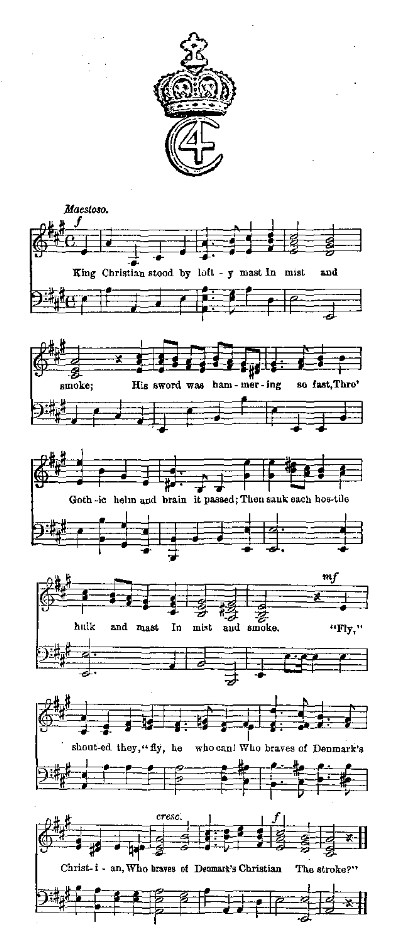 полная версия
полная версияHero Tales of the Far North
While the population in the rest of Denmark is about stationary, in west Jutland it grows apace. The case of Skåphus farm in the parish of Sunds shows how this happens. Prior to 1870 this farm of three thousand acres was rated the "biggest and poorest" in Denmark. Last year it had dwindled to three hundred and fifty acres, but upon its old land thirty-three homesteads had risen that kept between them sixty-two horses and two hundred and fifty-two cows, beside the sheep, and the manor farm was worth twice as much as before. The town of Herning, sometimes called "the Star of the Heath," is the seat of Hammerum county, once the baldest and most miserable on the Danish mainland. In 1841 twenty-one persons lived in Herning. To-day there are more than six thousand in a town with handsome buildings, gas, electric lighting, and paved streets. The heath is half a dozen miles away. And this is not the result of any special or forced industry, but the natural, healthy growth of a centre for an army of industrious men and women winning back the land of their fathers by patient toil. All through the landscape one sees from the train the black giving way to the green. Churches rear their white gables; bells that have been silent since the Black Death stalked through the land once more call the people to worship on the old sites. More churches were built in the reign of "the good King Christian," who has just been gathered to his fathers, than in all the centuries since the day of the Valdemars.
Bog cultivation is the Heath Society's youngest child. The heath is full of peat-bogs that only need the sand, so plentiful on the uplands, to make their soil as good as the best, the muck of the bog being all plant food, and they have a surplus of water to give in exchange. With hope the keynote of it all, the State has taken up the herculean task of keeping down the moving sands of the North Sea coast. All along it is a range of dunes that in the fierce storms of that region may change shape and place in a single night. The "sand flight" at times reached miles inland, and threatened to bury the farmer's acres past recovery. Austrian fir and dwarf pine now grow upon the white range, helping alike to keep down the sand and to bar out the blast.
With this exception, the great change has been, is being, wrought by the people themselves. It was for their good, in the apathy that followed 1864, that it should be so, and Dalgas saw it. The State aids the man who plants ten acres or more, and assumes the obligation to preserve the forest intact; the Heath Society sells him plants at half-price, and helps him with its advice. It disposes annually of over thirteen million young trees. The people do the rest, and back the Society with their support. The Danish peasant has learned the value of coöperation since he turned dairy farmer, and associations for irrigation, for tree planting, and garden planting are everywhere. They even reach across the ocean. This year a call was issued to sons of the old soil, who have found a new home in America, to join in planting a Danish-American forest in the desert where hill and heather hide a silvery lake in their deep shadows and returning wanderers may rest and dream of the long ago.
Soldier though he was, Enrico Dalgas's pick and spade brigade won greater victories for Denmark than her armies in two wars. He literally "won for his country within what she had lost without." A natural organizer, a hard worker who found his greatest joy in his daily tasks, a fearless and lucid writer who yet knew how to keep his cause out of the rancorous politics that often enough seemed to mistake partisanship for patriotism, he was the most modest of men. Praise he always passed up to others. At the "silver wedding" of the Society he founded they toasted him jubilantly, but he sat quiet a long time. When at last he arose, it was to make this characteristic little speech:
"I thank you very much. His Excellency the Minister of the Interior, who is present here, will see from this how much you think of me, and possibly my recommendation that the State make a larger contribution to the Heath Society's treasury may thereby acquire greater weight with him. I drink to an increased appropriation."
On the heath Dalgas was prophet, prince, and friend of the people. In the crowds that flocked about his bier homespun elbowed gold lace in the grief of a common loss. Boughs of the fragrant spruce decked his coffin, the gift of the heath to the memory of him who set it free.
To Dalgas apply the words of the seer with which he himself characterized the Society that was the child of his heart and brain: "The good men are those who plant and water," for they add to the happiness of mankind.
KING CHRISTIAN IV

Deep in the beech-woods between Copenhagen and Elsinore, upon the shore of a limpid lake, stands Frederiksborg, one of the most beautiful castles in Europe. In its chapel the Danish kings were crowned for two centuries, and here was born on April 12, 1577, King Christian of the Danish national hymn which Longfellow translated into our tongue. No Danish ruler since the days of the great Valdemars made such a mark upon his time; none lives as he in the imagination of the people. He led armies to war and won and lost battles; indeed, he lost more than he won on land when matched against the great generals of that fighting era. On the sea he sailed his own ship and was the captain of his own fleet, and there he had no peer. He made laws in the days of peace and reigned over a happy, prosperous land. In his old age misfortune in which he had no share overwhelmed Denmark, but he was ever greatest in adversity, and his courage saved the country from ruin. The great did not love him overmuch; but to the plain people he was ever, with all his failings, which were the failings of his day, a great, appealing figure, and lives in their hearts, not merely in the dry pages of musty books.
He was eleven years old when his father died, and until he came of age the country was governed by a council of happily most able men who, with his mother, gave him such a schooling as few kings have had. He not only became proficient in the languages, living and dead, and in mathematics which he put to such practical use that he was among the greatest of architects and ship-builders; he was the best all-round athlete among his fellows as well, and there was some sense in the tradition that survives to this day that whoever was touched by him in wrath did not live long, for he was very tall with a big, strong body, and when he struck, he struck hard. He was a dauntless sailor who knew as much about sailing a ship as any one of his captains, and much more about building it. Danger appealed to him always. When the spire on the great cathedral in Copenhagen threatened to fall, he was the one who went up in it alone and gave orders where and how to brace it.
As he grew, he sat in the council of state, learning kingcraft, and showed there the hard-headed sense of fairness and justice that went with him through life. He was hardly fourteen when the case of three brothers of the powerful Friis family came before the council. They had attacked another young nobleman in the street, struck off one of his hands, and crippled the other. Because of their influence, the council was for being lenient, atrocious as the crime was. A fine was deemed sufficient. The young prince asked if there were not some law covering the case with severer punishment, and was told that in the province of Skaane there was such a law that applied to serfs. But the assault had not been committed in Skaane, and these were high noblemen.
"All the worse for them," said the prince. "Is then a serf in Skaane to have more rights under the law than a nobleman in the rest of Denmark? Let the law for the serf be theirs." And the judgment stood.
He had barely attained his majority, when the young king was called upon to judge between another great noble and a widow whom he sued for 9000 daler, money he claimed to have lent to her husband. In proof he laid before the judges two bonds bearing the signatures of husband and wife. The widow denounced them as forgeries, but the court decided that she must pay. She went straight to the King with her story, assuring him that she had never heard of the debt. The King sent for the bonds and upon close scrutiny discovered that one of them was on paper bearing the water-mark of a mill that was not built till two years after the date written in the bond. The noble was arrested and the search of his house brought to light several similar documents waiting their turn. He went to the scaffold. His rank only aggravated his offence in the eyes of the King. No wonder the fame of this judge spread quickly through the land.
A dozen contented years he reigned in peace, doing justice between man and man at home. Then the curse of his house gripped him. In two centuries, since the brief union between the three Scandinavian kingdoms was broken by the secession of Sweden, only two of sixteen kings in either country had gone to their rest without ripping up the old feud. It was now Christian's turn. The pretext was of little account: there was always cause enough. Gustav Adolf, whose father was then on the throne of Sweden, said in after years that there was no one he had such hearty admiration for and whose friend he would like so well to be as Christian IV: "The mischief is that we are neighbors." King Christian crossed over into Sweden and laid siege to the strong fortress of Kalmar where he first saw actual war and showed himself a doughty campaigner of intrepid courage. It came near costing him his life when a cannoneer with whom he had often talked on his rounds deserted to the enemy and picked the King out as his especial target. Twice he killed an officer attending upon him, but the King he never hit. It is almost a pleasure to record that when he tried it again, in another fight, Christian caught him and dealt with him as the traitor he was, though the rough justice of those days is not pleasant to dwell on. The besieged tried to create a diversion by sneaking into camp at night and burying wax images of the King and his generals in the earth, where they were afterwards found and spread consternation through the army; for such things were believed to be wrought by witchcraft and to bring bad luck to those whom they represented.
However, neither the real courage of the defenders, nor their dallying with the black art, helped them any. King Christian stormed the town at the head of his army and took it. The burgomaster hid in the church, disguised as a priest, and pretended to be shriving some women when the crash came, but it did not save him. When the Swedish king came with a host twice the size of his own, there was a battle royal, but Christian drove him off and laid siege to the castle where dissension presently arose between the garrison and its commander who was for surrendering. In the midst of their noisy quarrel, King Christian was discovered standing upon the wall, calmly looking on. He had climbed up alone on a rope ladder which the sentinel let down at his bidding. At the sight they gave it up and opened the gates, and the King wrote home, proudly dating his letter from "our castle Kalmar."
Its loss so angered the Swedish king who was old and sick, that he challenged Christian to single combat, without armor. The letters that passed between them were hardly kingly. King Christian wrote that he had other things to do: "Better catch a doctor, old man, and have your head-piece looked after." Helpless anger killed Karl, and Gustav Adolf, of whom the world was presently to hear, took the command and the crown. After that Christian had a harder road to hoe.
A foretaste of it came to him when he tried to surprise the fortress of Gullberg near the present Götaborg. Its commander was wounded early in the fight, but his wife who took his place more than filled it. She and her women poured boiling lye upon the attacking Danes until they lay "like scalded pigs" under the walls. Their leader knew when he had enough and made off in haste, with the lady commandant calling after him, "You were a little unexpected for breakfast, but come back for dinner and we will receive you properly." She would not even let them take their dead away. "Since God gave us luck to kill them," she said, "we will manage to bury them too." They were very pious days after their own fashion, and God was much on the lips of his servants. Troubles rarely come singly. Soon after, King Christian met the enemy unexpectedly and was so badly beaten that for the second time he had to run for it, though he held out till nearly all his men had fallen. His horse got mired in a swamp with the pursuers close behind. The gay and wealthy Sir Christen Barnekow, who had been last on the field, passed him there, and at once got down and gave him his horse. It meant giving up his life, and when Sir Christen could no longer follow the fleeing King he sat down on a rock with the words, "I give the King my horse, the enemy my life, and God my soul." The rock is there yet and the country folk believe that the red spots in the granite are Christen Barnekow's blood which all the years have not availed to wash out.
They tired of fighting at last and made it up. Sweden paid Denmark a million daler; for the rest, things stayed as they had been before. King Christian had shown himself no mean fighter, but the senseless sacking and burning of town and country that was an ugly part of those days' warfare went against his grain, and he tried to persuade the Swedes to agree to leave that out in future. Gustav Adolf had not yet grown into the man he afterward became. "As to the burning," was his reply, "seeing that it is the usage of war, and we enemies, why we will each have to do the best we can," which meant the worst. Had the two kings, who had much in common, got together in the years of peace that followed, much misery might have been saved Denmark, and a black page of history might read very differently. For those were the days of the Thirty Years' War, in which together they might have dictated peace to harassed Europe.
Now King Christian's ambition, his piety, for he was a sincerely religious man, as well as his jealousy of his younger rival and of the growing power of Sweden—so mixed are human motives—made him yield to the entreaties of the hard-pressed Protestant princes to take up alone their cause against the German Emperor. He had tried for half a dozen years to make peace between them. At last he drew the sword and went down to force it. After a year of fighting Tilly and Wallenstein, the Emperor's great generals, he met the former in a decisive battle at Lutter-am-Baremberg. King Christian's army was beaten and put to rout. He himself fled bareheaded through the forests of the Hartz Mountains, pursued by the enemy's horsemen. It was hardly necessary for the Emperor to make him promise as the price of peace to keep out of German affairs thenceforth. His allies had left him to fight it out alone. All their fine speeches went for nothing when it came to the test, and King Christian rode back to Denmark, a sadder and wiser man. It was left to Gustav Adolf, after all, to teach the German generals the lesson they needed.
In the years of peace before that unhappy war, Danish trade and Danish culture had blossomed exceedingly, thanks to the wisdom, the clever management, and untiring industry of the King. He built factories, cloth-mills, silk-mills, paper-mills, dammed the North Sea out from the rich marshlands with great dikes, taught the farmers profitable ways of tilling their fields; for he was a wondrous manager for whom nothing was too little and nothing too big. He kept minute account of his children's socks and little shirts, and found ways of providing money for his war-ships and for countless building schemes he had in hand both in Denmark and Norway. For many of them he himself drew the plans. Wherever one goes to this day, his monogram, which heads this story, stares at him from the splendid buildings he erected. The Bourse in Copenhagen and the Round Tower, the beautiful palace of Rosenborg, a sort of miniature of his beloved Frederiksborg which also he rebuilt on a more magnificent scale—these are among his works which every traveller in the North knows. He built more cities and strongholds than those who went before or came after him for centuries. Christiania and Christiansand in Norway bear his name. He laid out a whole quarter of Copenhagen for his sailors, and the quaint little houses still serve that purpose. Regentsen, a dormitory for poor students at the university, was built by him. He created seven new chairs of learning and saw to it that all the professors got better pay. He ferreted out and dismissed in disgrace all the grafting officials in Norway, and administered justice with an even hand. At the same time he burned witches without end, or let it be done for their souls' sake. That was the way of his time; and when he needed fireworks for his son's wedding (he made them himself, too), he sent around to all the old cloisters and cathedral churches for the old parchments they had. Heaven only knows what treasures that can never be replaced went up in fire and smoke for that one night's fun.
King Christian founded a score of big trading companies to exploit the East, taking care that their ships should have their bulwarks pierced for at least six guns, so that they might serve as war-ships in time of need. He sent one expedition after another to the waters of Greenland in search of the Northwest Passage. It was on the fourth of these, in 1619, that Jens Munk with two ships and sixty-four sailors was caught in the ice of Hudson Bay and compelled to winter there. One after another the crew died of hunger and scurvy. When Jens Munk himself crept out from what he had thought his death-bed, he found only two of them all alive. Together they burrowed in the snow, digging for roots until spring came when they managed to make their way down to Bergen in the smallest of the two vessels. Jens Munk had deserved a better end than he got. He spun his yarns so persistently at court that he got to be a tiresome bore, and at last one day the King told him that he had no time to listen to him. Whereat the veteran took great umbrage and, slapping his sword, let the King know that he had served him well and was entitled to better treatment. Christian snatched the weapon in anger and struck him with the scabbard. The sailor never got over it. "He withered away and died," says the tradition. It was the old superstition; but whether that killed him or not, the King lost a good man in Jens Munk.
He was not averse to hearing the truth, though, when boldly put. When Ole Vind, a popular preacher, offended some of the nobles by his plain speech and they complained to the King, he bade him to the court and told him to preach the same sermon over. Master Vind was game and the truths he told went straight home, for he knew well where the shoe pinched. But King Christian promptly made him court preacher. "He is the kind we need here," he said. There was never a day that the King did not devoutly read his Bible, and he was determined that everybody should read it the same way. The result was a kind of Puritanism that filled the churches and compelled the employment of men to go around with long sticks to rap the people on the head when they fell asleep. Christian the Fourth was not the first ruler who has tried to herd men into heaven by battalions. But his people would have gladly gone in the fire for him. He was their friend. When on his tramps, as likely as not he would come home sitting beside some peasant on his load of truck, and would step off at the palace gate with a "So long, thanks for good company!" He was everywhere, interested in everything. In his walking-stick he carried a foot-rule, a level, and other tools, and would stop at the bench of a workman in the navy-yard and test his work to see how well he was doing it. "I can lie down and sleep in any hut in the land," was his contented boast. And he would have been safe anywhere.
Gustav Adolf was a wise and generous foe. While he lived he refused to listen to proposals for the partition of Denmark after King Christian's defeat in Germany. He knew well that she was a barrier against the ambition of the German princes and that, once she was out of the way, Sweden's turn would come next. But when he had fallen on the battle-field of Lützen, and his generals, following in his footsteps, had achieved fame and lands and the freedom of worship for which he gave his life, the Swedish statesmen lost their heads and dreamed of the erection of a great northern Protestant state by the conquest of Denmark and Norway, to balance the power of the German empire. Without warning or declaration of war a great army was thrown into the Danish peninsula from the south. Another advanced from Sweden upon the eastern provinces, and a fleet hired in Holland for Swedish money came through the North Sea to help them over to the Danish islands. If the two armies met, Denmark was lost. In Swedish harbors a still bigger fleet was fitting out for the Baltic.
King Christian was well up in the sixties, worn with the tireless activities of a long reign; but once more he proved himself greater than adversity. When the evil tidings reached him, in the midst of profound peace, the enemy was already within the gates. The country lay prostrate. The name of Torstenson, the Swedish general, spread terror wherever it was heard. In the German campaigns he had been known as the "Swedish Lightning." Beset on every side, never had Denmark's need been greater. The one man who did not lose his head was her king. By his personal example he put heart into the people and shamed the cowardly nobles. He borrowed money wherever he could, sent his own silver to the mint, crowded the work in the navy-yard by night and by day, gathered an army, and hurried with it to the Sounds where the enemy might cross. When the first ships were ready he sailed around the Skaw to meet the Dutch hirelings. "I am old and stiff," he said, "and no good any more to fight on land. But I can manage the ships."
And he did. He met the Dutchmen in the North Sea, in under the Danish coast, and whipped them, almost single-handed, for his own ship Trefoldigheden was for a long while the only one that wind and tide would let come up with them. That done, he left one of his captains to watch lest they come out from among the islands where their ships of shallower draught had sought refuge, and sailed for Copenhagen. Everything that could carry sail was ready for him by that time; also the news that the Swedish fleet of forty-six fighting ships under Klas Fleming had sailed for the coast of Holstein to take on board Torstenson's army.
King Christian lost no time. He hoisted his flag on Trefoldigheden and made after them with thirty-nine ships, vowing that he would win this fight or die. At Kolberger Heide, the water outside the Fjord of Kiel, he caught up with them and attacked at once. The battle that then ensued is the one of which the poet sings and with which the name of Christian IV is forever linked.
At the outset the Danish fleet was in great peril. The Swedes fought gallantly as was their wont, and they were three or four against one, for most of the King's ships came up slowly, some of them purposely, so it seems. The King said after the battle of certain of his captains, "They used me as a screen between them and the enemy." His own ship and that of his chief admiral's bore the brunt of the battle for a long time. Trefoldigheden fired 315 shots during the engagement, and at one time had four hostile, ships clustering about her. King Christian was on the quarter-deck when a cannon-ball shivered the bulwark and one of his guns, throwing a shower of splintered iron and wood over him and those near him, killing and wounding twelve of the crew. The King himself fell, stunned and wounded in twenty-three places. His right eye was knocked out, two of his teeth, and his left ear hung in shreds.
The cry was raised that the King was dead and panic spread on board. The story has it that a sailor was sent aloft to strike the flag but purposely entangled it in the rigging so that it could not fall; he could not bear to see the King's ship strike its colors. In the midst of the tumult the aged monarch rose to his feet, torn and covered with blood. "I live yet," he cried, "and God has left me strength to fight on for my country. Let every man do his duty." Leaning on his sword, he led the fight until darkness fell and the battle was won. Denmark was saved. The danger of an invasion was averted. In the palace of Rosenborg the priceless treasure they show to visitors is the linen cloth, all blood-stained, that bound the King's face as he fought and won his last and biggest fight that day.









